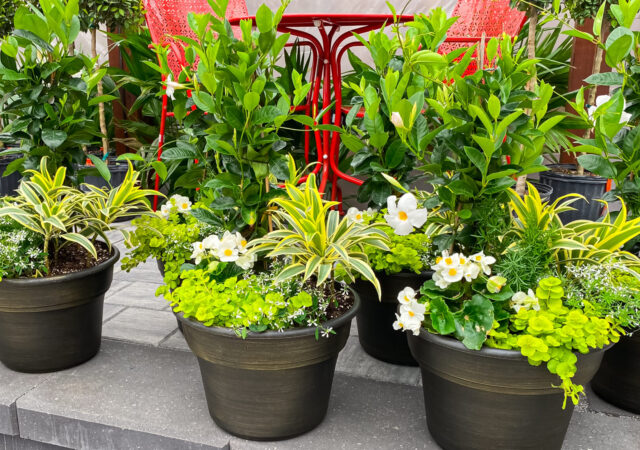Veggie gardens are a great way to have affordable, healthy produce all summer long. From beginner to expert, these gardens can be very rewarding. Here are a few tips to get you started.
 Get your plants some friends. Have you tried companion planting? Once you have an idea of what plants you’d like included in your backyard grocer, do a quick Google search to see if your combos play well with others. For example, carrots, cucumbers, celery, and radishes get along great. The same goes for cauliflower, cabbage, and lettuce. However, there’s some tension between broccoli and tomatoes, dill and carrots, beans and onions, and potatoes and squash. Your veggies are also partial to some handy flower varieties. Planting marigolds among your veggies will help keep bugs away!
Get your plants some friends. Have you tried companion planting? Once you have an idea of what plants you’d like included in your backyard grocer, do a quick Google search to see if your combos play well with others. For example, carrots, cucumbers, celery, and radishes get along great. The same goes for cauliflower, cabbage, and lettuce. However, there’s some tension between broccoli and tomatoes, dill and carrots, beans and onions, and potatoes and squash. Your veggies are also partial to some handy flower varieties. Planting marigolds among your veggies will help keep bugs away!
Mulch madness! Mulching your garden has a variety of great benefits. Help your plants’ roots retain moisture and keep weeds at bay with the magic of mulch. Two birds, one stone. It also gives your garden that polished look, for veggies you’ll want your neighbors peeking over the fence to see.
 Reap what you’ve grown. By starting to harvest right when your plants are ready, you allow the plants to retain nutrients and energy that will feed new growth. Get those summertime recipes ready, you’re going to need them!
Reap what you’ve grown. By starting to harvest right when your plants are ready, you allow the plants to retain nutrients and energy that will feed new growth. Get those summertime recipes ready, you’re going to need them!
Newbies welcome. New to fruit and vegetable gardening? Don’t worry about it. Try tackling some of the lower-maintenance options to start out with. Tomatoes, green beans, lettuce, zucchini, and raspberries are all great ways to get growing. These plants will give you results without requiring any master gardener status.
Welcome to summer! Prep & plant, weed & water, eat & enjoy!



